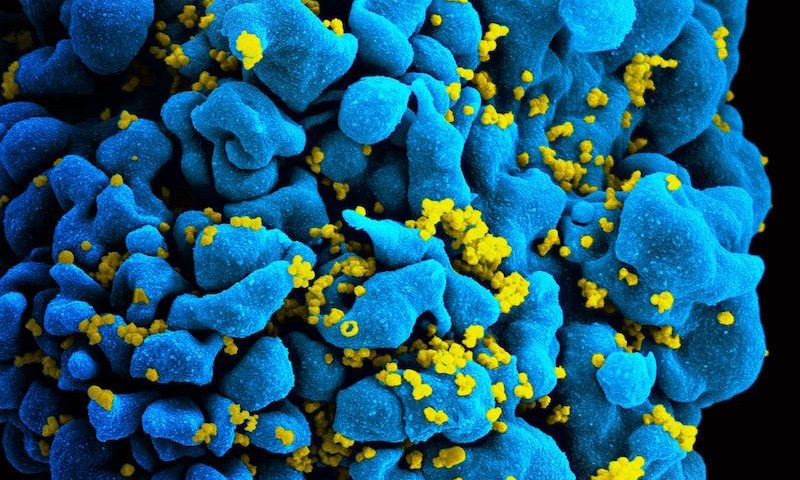In its second pharma deal, Dewpoint Therapeutics is teaming up with Merck to develop a new way to fight HIV using its molecular condensates platform. The duo kept specifics under wraps, but Dewpoint could net up to $305 million in upfront and milestone payments.
Biomolecular condensates are membraneless organelles whose main job is to surround and contain reactants—such as proteins and nucleic acids—for chemical reactions within cells. Researchers and drug developers have long known about condensates, but they have been “understudied” because they are difficult to analyze with conventional drug discovery methods.
Dewpoint built technology to solve that problem. The high-throughput condensate platform allows the company to see and understand how biomolecular “communities” of proteins, RNAs and other molecules interact and find new drug targets.
“Condensates are everywhere—they’re found in all cell types and they’re relevant to all diseases,” Mark Murcko, Dewpoint’s chief scientific officer, told Fierce Biotech in a previous interview. “Our mission is to figure out how we can take that knowledge and transform that into great new drugs to treat patients who would otherwise have no options.”
The FDA approved two HIV treatments from Merck in 2018: Pifeltro and Delstrigo. Both are antiretroviral meds—the standard of care for HIV—meaning they can stop the virus from replicating but can’t eliminate it from the body. If a patient stops antiretroviral therapy, or doesn’t stick to their drug regimen, virus levels can quickly bounce back.
Merck and Dewpoint aim to go beyond controlling the virus, setting their sights on potentially curing people of HIV.
“Dewpoint and Merck will leverage Dewpoint’s expertise in condensates to develop an HIV drug candidate with a unique mechanism that may provide the potential to cure rather than suppress the infection,” said Ann Kwong, Dewpoint’s executive vice president of R&D.
The Merck partnership comes eight months after Dewpoint joined forces with Bayer to create new drugs for a pair of neglected fields: heart disease and women’s health. Beyond the areas it’s sharing with partners, Dewpoint has yet to reveal which diseases it’s tackling in its own pipeline.
But given the “natural history” of the company’s founding and the specialties of its founders, its initial focus is likely to be cancer and neurodegenerative diseases, CEO Amir Nashat told Fierce Biotech last year.

